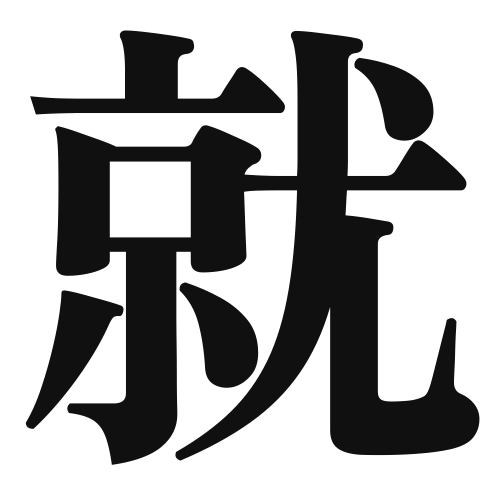1. Overview of Meaning
The kanji “就” (pronounced “shuu” or “juu”) generally means “to become,” “to establish,” or “to engage in.” It is often used in contexts related to starting a job or undertaking a task.
2. Formation and Radical
Formation of the Kanji: The kanji “就” is a compound character that combines elements to convey its meaning. It is not a pictogram or ideogram but rather a character that represents a concept through its components.
Radical: The radical for “就” is “人” (meaning “person”), which reflects its connection to human activities and actions.
3. Examples of Usage
Common Words and Phrases: Some frequently used words that include “就” are “就職” (shūshoku – employment) and “就業” (shūgyō – work or employment).
Example Sentences in Daily Conversation:
- 彼は新しい仕事に就きました。 (Kare wa atarashii shigoto ni tsukimashita.) – He has started a new job.
- 就職活動は大変です。 (Shūshoku katsudō wa taihen desu.) – Job hunting is tough.
4. Synonyms and Antonyms
Similar Kanji: A similar kanji is “成” (naru – to become), which also conveys the idea of becoming or achieving something, but “就” emphasizes the act of engaging or starting.
Opposite Kanji: An antonym is “退” (tai – to retreat or withdraw), which indicates the opposite action of engaging or starting something.
5. Cultural and Historical Background
Connection to Japanese Culture: The kanji “就” is often associated with the concept of work and diligence, which are highly valued in Japanese culture. It reflects the importance of employment and commitment in society.
Proverbs and Idioms: One common saying is “就職難” (shūshoku nan – difficulty in finding employment), which highlights the challenges faced by job seekers in Japan.
